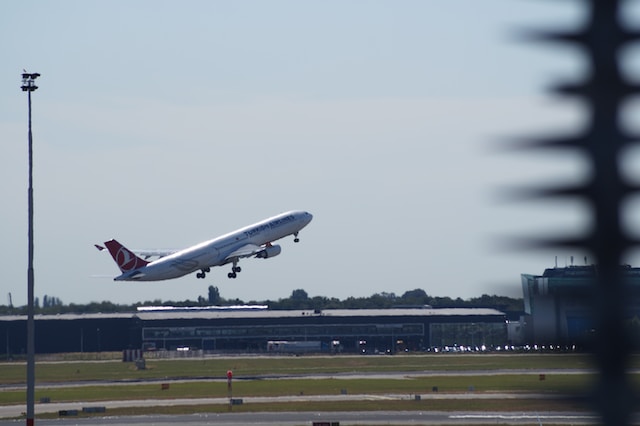[Reuters Analysis] How US-EU aerospace rivals united to preserve tariff-free aircraft trade

- US-EU deal eases worry over jet production and deliveries
- Culp lobbied to restore tariff-free aerospace trade regime
- Concerns remain over China tensions, ongoing US aerospace probe
By Tim Hepher, David Shepardson and Rajesh Kumar Singh
PARIS, July 28 (Reuters) - A provisional deal between the United States and European Union to exempt aircraft from tariffs avoids a potential threat to jet production and deliveries in both regions and caps months of uncharacteristic unity among plane-making rivals.
The framework deal, announced on Sunday, will see the U.S. impose a 15% import tariff on most EU goods but offer protection for industries including aerospace, with zero-for-zero tariffs on aircraft and parts, European officials said.
Following intense lobbying, it spares an industry that is often a lightning rod for trade tensions, with the World Trade Organization tested to its limits by a 17-year dispute over Airbus AIR.PA and Boeing BA.N subsidies before a truce in 2021.
Aircraft, engines, spare parts, and components from landing gear to seats had faced potentially higher costs and some jet deliveries looked set to be disrupted by the threatened U.S. tariffs that would have compounded supply chain problems.
Still, questions remain over detailed implementation of the deal and whether it will extend to other components like space.
"We are just waiting until we see these things written down," one European industry official told Reuters.
Airbus said it had taken note of the deal.
"A stable and predictable trade environment is essential for our highly integrated global aerospace industry," it said.
Boeing had no immediate comment.
UNITED CAMPAIGN
Sunday's agreement follows a discreet and unusually united campaign to revert to a landmark 1979 agreement between over 30 nations that mandated duty-free trading in civil aircraft.
An industry that only a few years earlier had torn itself apart over trade disputes on subsidies involving Airbus and Boeing found itself in lockstep on both sides of the Atlantic.
But two terms from the industry's previous trade handbook were quietly dropped, sources said: multilateral and WTO.
The 1979 Agreement on Trade in Civil Aircraft that eliminated tariffs on aircraft and parts is one of a handful of industry-specific deals that survived from an earlier round of trade talks when the World Trade Organization opened in 1995.
U.S. President Donald Trump, who once called the WTO "the single worst trade deal ever made," appears to prefer bilateral deals over broad alliances from trade to security, and "multilateralism" is one of the biggest bugbears of his America First philosophy.
Lobbying was intense from all quarters but industry sources highlighted a discreet but influential role played by GE Aerospace GE.N CEO Larry Culp.
Culp told Reuters in April he had advocated re-establishing the tariff-free regime for the aerospace industry during a meeting with Trump at the White House.
He said the position was "understood" by the administration, stressing that the zero-duty regime had helped the U.S. aerospace industry reach a $75 billion annual trade surplus.
Industry officials also argued aerospace was interconnected and that U.S. tariffs would not favour Boeing at the expense of its European rival Airbus, but merely hurt everyone.
GE did not have any immediate comment on the new deal.
In May, Trump reached a trade accord with Britain that tested the ground by restoring duty-free trading in jet engines.
'TEMPLATE' FOR TALKS
After the US-UK trade deal, aerospace industry officials urged the White House to use it as a template for future trade negotiations. GE's Culp and Delta Air Lines DAL.N CEO Ed Bastian mentioned the deal as a template to follow.
The agreement stops short of restoring the whole 1979 agreement and focuses on the single largest aerospace markets.
Boeing typically delivers 17% of its jets to Europe while Airbus delivers some 12% to the United States, some of which are assembled locally, according to Boeing and Cirium data.
But Europe and the U.S. are each other's largest market for aircraft components, according to French industry lobby Gifas.
Although the agreement relieves one significant source of pressure, there are concerns that Boeing, Airbus and their suppliers could still be caught up indirectly in trade tensions between Washington and China, as they seek to do business there.
Aerospace companies are also awaiting findings from an ongoing U.S. trade investigation into aerospace.
In May, the U.S. Commerce Department launched a "Section 232" national security investigation into imports of commercial aircraft, jet engines and parts that could form the basis for tariffs or quotas.
U.S. airlines who met the department say much of the focus has been on China and concerns over potential further disruption to key supplies, on top of rare earths and magnets.
It could also be used to impose new tariffs on Brazil, home to Embraer, for whose regional jets there are few alternatives.
U.S. carriers currently face 50% tariffs on imports of the jets, which Embraer says could add $9 million per plane. Alaska Air ALK.N said last week it could defer some deliveries.








